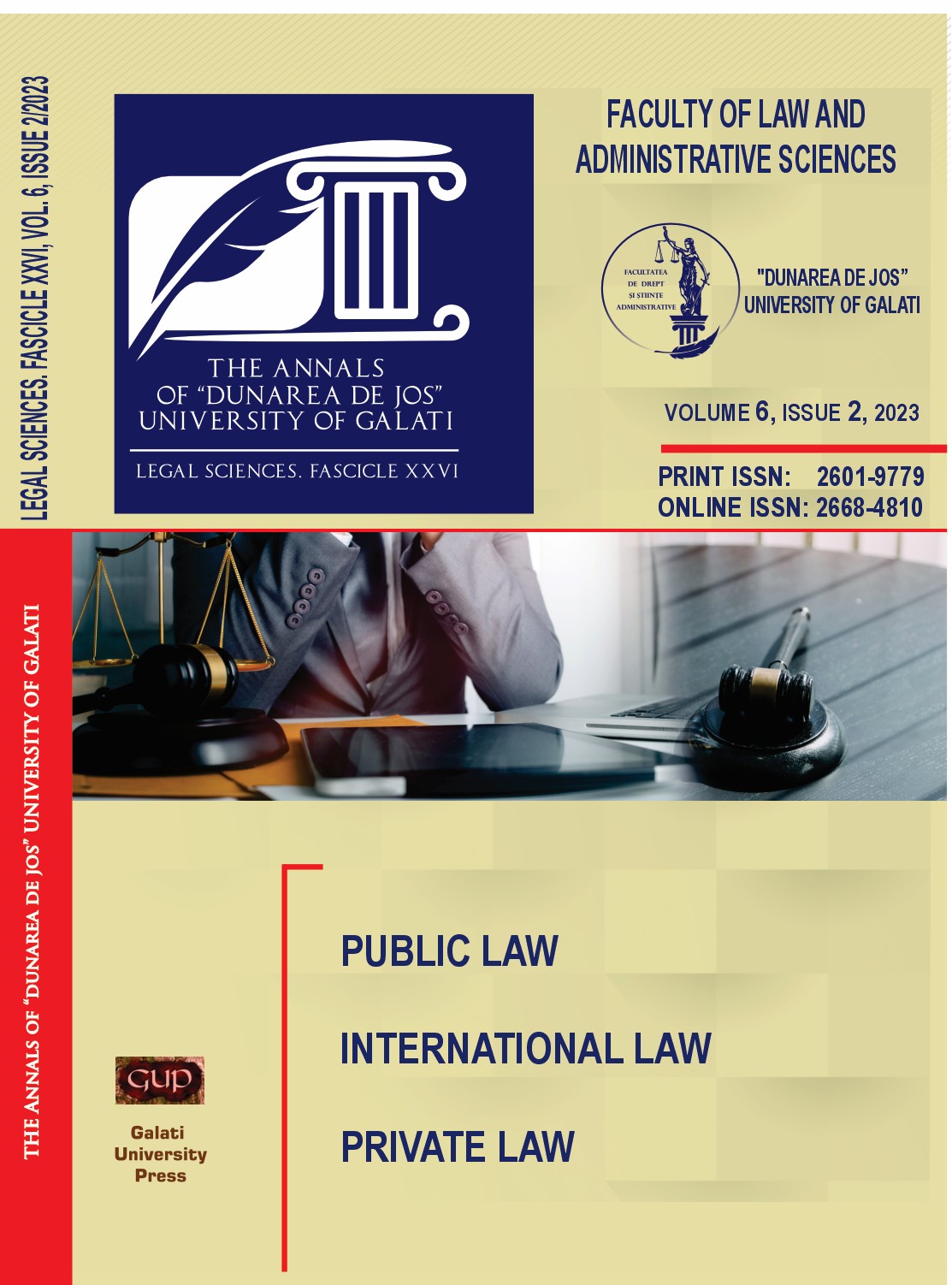Effects of Technical Surveillance on Individual Rights and Freedoms
Abstract
Technical surveillance has become a basic evidentiary procedure in criminal investigations, allowing authorities to gather valuable information in the fight against crime. However, this procedure raises many questions and challenges from a legal and ethical point of view.
The paper analyses the compatibility of the legal texts that regulate technical surveillance with the provisions of the Constitution, as well as of the European Convention, including the rules regarding the approval of warrants for the interception of communications, access to electronic data and the protection of the fundamental rights of the individual, as well as the effects on the individual rights and freedoms of procedural subjects.
We have analysed how the evidentiary procedure can interfere with constitutional rights, such as Article 8 of the Constitution regarding the right to intimate, private and family life, as well as the way in which it is respected the balance between intrusion into private life and the principles of proportionality, necessity and subsidiarity.
At the same time, we analyse the compatibility of the provisions of art. 138 and 139 of the Criminal Code with the provisions of the Constitution from the perspective of the recent decisions of the Constitutional Court.
This paper is of interest to theorists and legal practitioners in terms of analysing the balance of legal norms regarding technical supervision, in relation to the constitutional requirements, as well as those of the European Convention through the lens of the Strasbourg Court's jurisprudence.

This work is licensed under a Creative Commons Attribution 4.0 International License.
The author fully assumes the content's originality and the holograph signature makes him responsible in case of trial.


